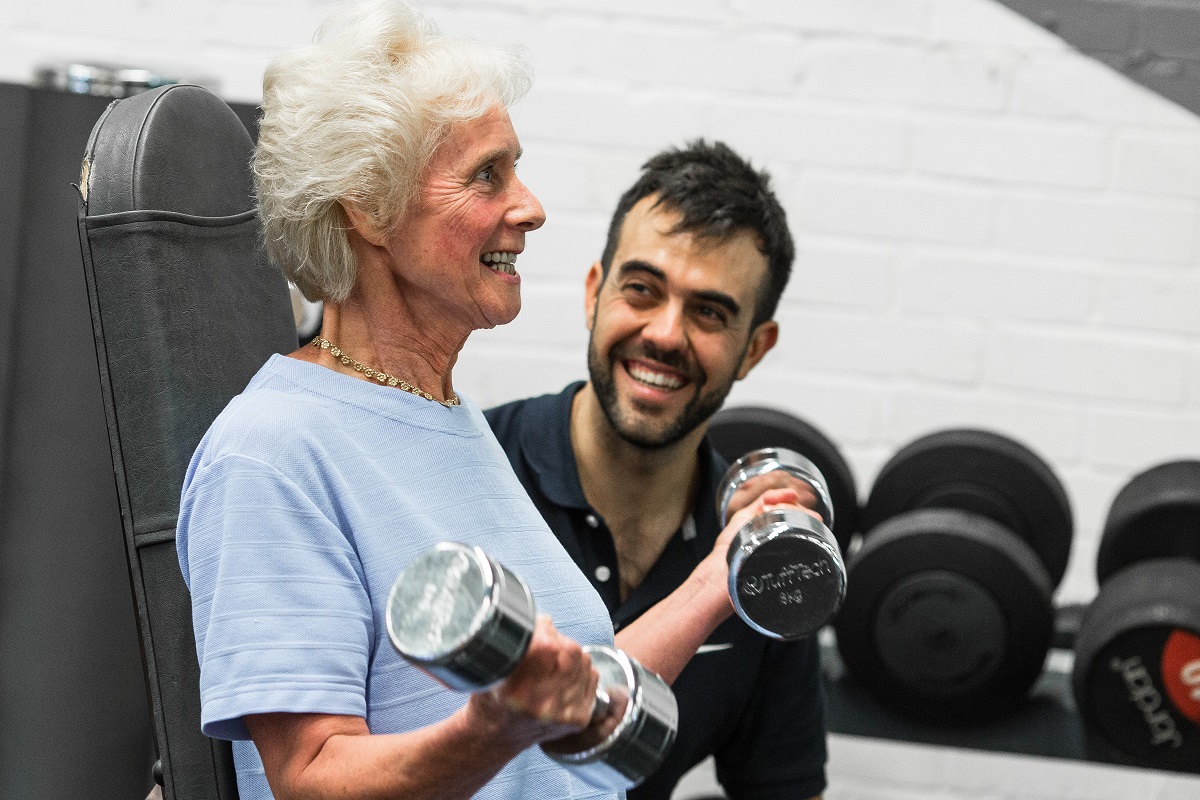“My doctor says that I cannot lift weights”
Last time out we emphasised the importance of strength training. It’s use extends through the different stages of life. How does it impact and improve the health and well-being of older audlts?
All of us are getting older. There’s no holding back the years. Everyone wants to remain as autonomous and independent for as long as humanly possible, and hopefully to our final days. Strength is the important friend that will allow us to keep going, maintaining our motor functionality.
There are many studies that discuss the connection between loss of muscle mass and the onset of certain clinical diseases. Consider the 2008 paper published in the University of Chile Hospital’s clinical journal. It states that muscle loss increases dramatically as individuals reach the age of 50. It goes on to show that sarcopenia (loss of muscle tissue) can be as much as 25% in individuals aged of 70 and 40% in those over 80. He then draws the following conclusion:
Sarcopenia represents a risk factor for frailty, loss of independence and physical disability,
being related to multiple comorbidities in the elderly such as falls, functional decline,
osteoporosis, impaired thermoregulation and glucose intolerance and is even a predictor of
disability and mortality for all causes in old age. The loss of mobility resulting from the loss
of muscle predicts greater physical disability and mortality, associated with a worse quality
of life, greater social support and health care. (Molina, 2008; Roubenoff, 2000).
When we talk about people getting older, normally we’re referring to chronological age or the neurophysiological changes that cause us to lose muscle mass (sarcopenia) and strength (dynapenia). Such losses can be slowed or even prevented with strength training, which helps preserve functionality, gain and maintain muscle mass. Helping us move more fluidly, retain agility and cope with the different strains and stresses of our day to day life.
So when the doctor is warning us about heavy weights, we must understand what they’re actually talking about…
Yes we should lift weights. It’s important for our health – but always in the proper, controlled manner directed by a professional.
We have to learn and internalise the correct movements, especially for more complex exercise such as squats and deadlifts, which can help us take the loads we face in our day to day lives. At EMS Fitness Norwich, we have the qualified professionals who can teach you how to move safely, effectively and with the best technique to avoid injury.
Practicing controlled movements under supervision helps gain awareness of how you should move without risk of injury, strain or damage. Uncontrolled movements with heavy loads are discouraged, and more importantly we are able to spot these before we attempt to overexert ourselves. As a result we know when we can lift chairs, move tables, carry heavy bags of shopping and so on.
There are many actions that we take for granted on a day to day basis that rely on total body functionality. Having a strong and stable muscles throughout our body helps us to face these situations.
Therefore, strength training with loads and without external loads is very important in any type of person, but even more so in older adults, since it will helps preserve good health and ensure we stay as self sufficient as possible, even though our age is increasing. It’s important that our biological age is always less than our chronological age to retain our best health.
And of course, if you want to know how to gain great technique lifting weights – then please get in touch with EMS Fitness. We’ll be able to show you how to go through the basics using barbells, dumbbells and even kettlebells. Get in touch to find out how we can revolutionise your workouts.

